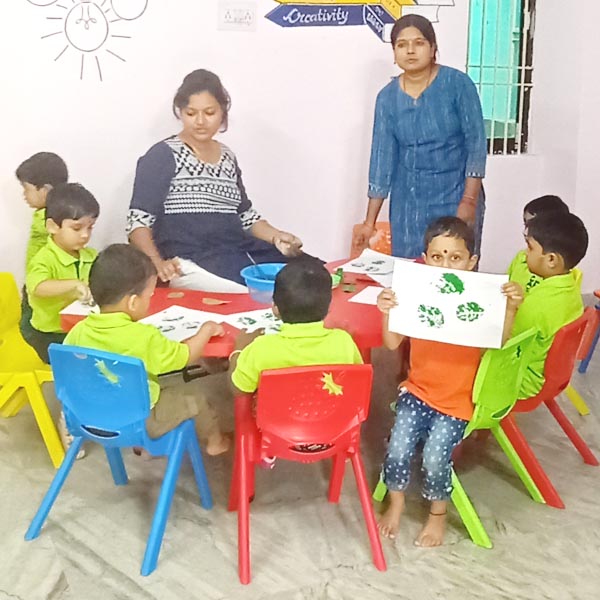B. MOTHER TODDLER PROGRAM (2 Yrs. – 2.5 Yrs.):
This program is specially designed to help mothers to prepare their child for ‘pre-school’ phase. A series of sessions will make sure your kid feels confident enough to join play-school without any discomfort.
- Child- centric approach
- Flexible time
- Multi-Sensory learning
Energy and excitement are a natural part of growth and learning .At DNA, we channel that energy into positive learning experiences, providing plenty of room to move and explore, while young minds discover A-STEM learning.
Learning experiences in these classrooms address the evolving developmental needs of this increasingly mobile age group, while milestone development continues to be guided by our exclusive Learn from the Start early education curriculum in five developmental areas:
- Cognitive Development: Children develop problem-solving and creative thinking skills.
- Language and Communication Development: Children develop the ability to communicate effectively using sounds, expressions, and body language.
- Physical Development and Health: Children develop the ability to coordinate and control large and small muscle movements.
- Social-Emotional Development: Children develop the ability to interact with others and increasing awareness of themselves and their emotions.
- Approaches to Learning: Children develop their problem-solving abilities.
We help develop young minds to be curious, versatile, and adaptable, through experiences across three distinct classroom areas:
- Cozy Area: Reading books, telling stories, having conversations.
- Exploration Area:Manipulating objects and interacting with materials.
- Movement Area:Exploring balance, coordination, gross motor skills.






